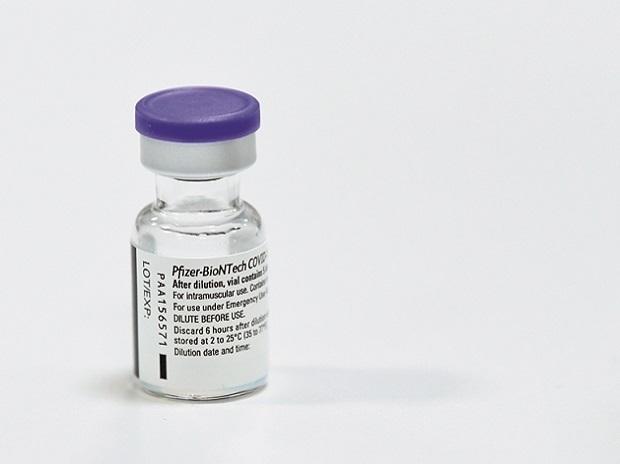Pfizer and BioNTech have agreed to supply their Covid-19 vaccine to the World Health Organization co-led COVAX vaccine access scheme, two sources familiar with the deal said, the latest in a series of shots to be included in the project aimed at lower-income countries.
The deal is expected to be announced on Friday, according to the sources, who declined to be named due to the confidentiality of the agreement.
Details on the size of the deal or the price per dose COVAX would pay were not immediately clear, but the sources said the allotment would likely be relatively small. One source said the reason for the limited volume was that the doses were primarily meant for healthcare workers in the countries that COVAX serves.
BioNTech declined to comment while Pfizer did not respond to requests for comment. Spokespeople for the WHO and the GAVI vaccine alliance, which co-leads the COVAX scheme, also declined to comment.
Senior WHO adviser Bruce Aylward said on Monday the COVAX scheme was in "very detailed discussions" with Pfizer, which has already committed hundreds of millions of doses this year to several wealthy nations, and expected to be able to include the vaccine in COVAX "very soon".
The COVAX scheme is set to start distributing Covid-19 vaccines to poor and middle income countries in February.
Ukraine said earlier on Thursday that its first delievery of Covid-19 vaccine under the COVAX scheme could arrive in the first half on February - with 210,000 doses of either the Moderna, Pfizer or AstraZeneca vaccines.
COVAX has said it hopes to deliver more than 2 billion Covid-19 doses across the world this year. In an updated forecast published on Thursday, it said it planned to deliver around 1.8 billion doses in 2021 to 92 poorer countries, covering around 27% of their populations.
The scheme - led by the WHO, the GAVI vaccine alliance and the Coalition for Epidemic Preparedness Innovations (CEPI)- was set up last year amid concerns that poorer nations would lose out while rich countries scrambled to procure Covid-19 vaccines to inoculate their populations.
COVAX has so far secured future vaccine suplies from AstraZeneca, working with Oxford University; the Serum Institute of India (SII) as well as with Sanofi and its partner GSK. It also has a memorandum of understanding over deliveries from Johnson & Johnson.
The Pfizer deal would be COVAX's second, after the one with AstraZeneca, that covers a product with regulatory approval in some countries.
The additional commitment by Pfizer comes as frustration grows in European countries over the US drugmaker's unexpected cut in supplies. Pfizer said last week it would reduce deliveries until early February to upgrade production capacity for a later output boost.
The Pfizer and BioNTech Covid-19 vaccine is the only shot so far to have WHO emergency use listing approval.
On Wednesday, Reuters reported that the WHO plans to approve several Covid-19 vaccines from Western and Chinese manufacturers in the coming weeks and months as it aims for rapid rollouts in poorer countries.
BioNTech and Pfizer said this month they were aiming to deliver 2 billion vaccine doses this year, up from a previous goal of 1.3 billion.
Their shot is more complicated to transport and store, requiring ultra-cold freezers, which may not be practical for poorer countries with hot climates.
 Dear Reader,
Dear Reader,
Business Standard has always strived hard to provide up-to-date information and commentary on developments that are of interest to you and have wider political and economic implications for the country and the world. Your encouragement and constant feedback on how to improve our offering have only made our resolve and commitment to these ideals stronger. Even during these difficult times arising out of Covid-19, we continue to remain committed to keeping you informed and updated with credible news, authoritative views and incisive commentary on topical issues of relevance.
We, however, have a request.
As we battle the economic impact of the pandemic, we need your support even more, so that we can continue to offer you more quality content. Our subscription model has seen an encouraging response from many of you, who have subscribed to our online content. More subscription to our online content can only help us achieve the goals of offering you even better and more relevant content. We believe in free, fair and credible journalism. Your support through more subscriptions can help us practise the journalism to which we are committed.
Support quality journalism and subscribe to Business Standard.
Digital Editor

RECOMMENDED FOR YOU